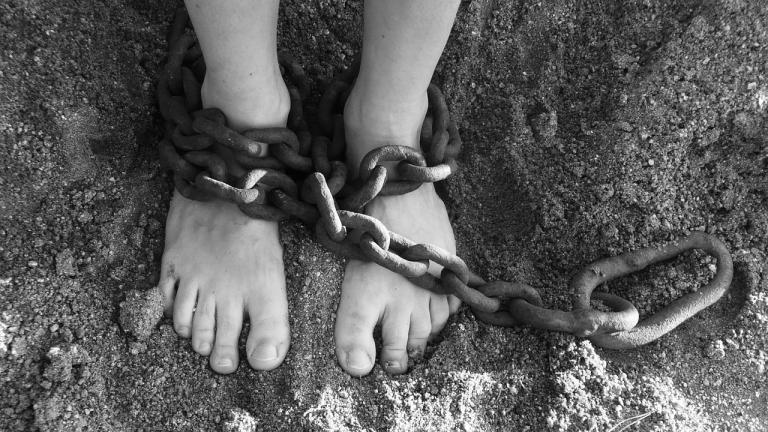A lot of you are probably aware of the “spoon theory” of chronic illness. For those who aren’t, the idea is that if you are chronically ill, you have a limited (usually fairly low) number of spoons that you can spend in order to perform actions, and you have to carefully steward which things you choose to spend them on. It’s a model that I’ve always found a little odd, since unless you know the story about how the theory came to be expressed this way, it’s hard to think of situations in which spoons would be a limited resource requiring careful allocation.
In any case, there is, I think, an equivalent difficulty that arises when you’re dealing with the problems of having a large family. If you only have one or two kids, you may feel like you have no freedom (especially if you’ve just had your first) but actually you can still do pretty much everything you have to do, and a lot of the things would like to do as well. You definitely have to think more about how to allocate your time and energy than you do when you’re single, but unless you have a handicap (like a chronic illness), fitting everything you need to do into a day is a solvable problem.
At a certain point, if you have enough kids, this is no longer the case. The number of things that need to get done exceeds the total amount of resources necessary to do the things. I think of these as “action points,” not “spoons,” because I happen to really enjoy resource allocation board games. (In these games, you usually have a certain finite number of actions that you can take on any given turn, usually symbolized by some sort of token or counter, and you try to allocate them in a way that will allow you to achieve your goals more effectively than the other players.)
So you start off every day with a certain pool of action points, and you have to try to figure out how you are going to spend them in order to keep things running along, ideally with some semblance of order. It takes a certain number of action points to keep people fed, a certain number of action points to make money to pay bills, a certain number of action points to tidy up (multiply by the number of rooms in the house), a certain number of action points to do laundry, to teach a lesson, to help with homework, to get kids ready for school, etc. etc. etc.
And there are never enough.
I first realized this a couple of years ago. At the time, I only had six kids, and I was feeling continually stressed out and inadequate because there were so many things that I wasn’t getting done. I was, in my head, “behind on everything.” I felt constantly guilty because I knew these things had to get done, but I just wasn’t doing them. Every so often I would decide to kick my own butt into gear, and I would make a schedule where all of the things got done. Then I would follow it for a couple of days – sometimes even for a whole week. Then I would collapse in a heap and be literally unable to force my body to get out of bed for a day or two.
None of these schedules ever actually included all of the things that needed doing. They always emphasized one aspect of my life (whatever I was feeling most guilty about) like housework, or homeschooling, and left little to no time for the other things. Meaning, even if I completely burnt myself out I couldn’t get done even half of the stuff that I felt I needed to do.
Eventually, feeling like I was going to go mad, I sat down and made myself a list of all of the things that I was supposed to get done, and a timetable that included the number of hours in a week, and a reasonable estimate of how long it would take to do things, and I started trying to form the ultimate, super-intricate, ideally balanced schedule – a mighty weapon in the war against disorder, forged of steely willpower and an iron resolve to get the children to do their chores.
And this is when I realized it literally could not be done.
Even if I made insane assumptions like “maybe I only need fifteen minutes of down-time twice a day to keep sane,” and “I don’t need to leave wiggle room for unexpected problems,” the pieces did not fit together. It was like trying to build a jigsaw out of a box into which pieces from four different puzzles had been dumped.
You might expect that this would produce a sense of despair, but actually there was something incredibly freeing about realizing that my task was physically impossible. Suddenly, I had ammunition in the fight against that interior voice that was constantly calling me out for being lazy and negligent. I could prove to it, with implacable logic, that its expectations could not be met unless it was able to provide me with a TARDIS.
It also made it easier for me to deal with other people’s expectations. Just as it’s common for healthy people to assume that chronically ill people have the ability to expend more energy than they in fact have during a day, it’s common for people without kids, or with only a couple of kids, to assume that I should be able to juggle everything that “needs to be done” in a large family.
I don’t know how many times in my life I’ve had people archly inform me that I should be able to do this or that on the basis that it’s a “small task,” it “only takes a couple of minutes,” and “if you stay on top of it, it never gets out of hand.” These people don’t realize that when you add up all of the “small tasks” that “only take a couple of minutes” necessary to “stay on top of things” in a house of nine people you can easily fill up more hours than there are in a day.
Most importantly, though, it gave me the breathing room necessary to readjust my definition of what “needs to get done.” Knowing that the task set before me could not be completed by a human allowed me to lower the bar without feeling like I was being lazy, or failing, or making excuses for myself.
I realized that some things need to get done…eventually. Other things need to get done…occasionally. Some things need to get done, but will sort themselves out if I just leave them alone. Some things need to get done by other people. And some things are actually completely optional and life will go on just fine if they never get done – even if there are people out there who think that they are the most important things in the world.
Image credit: pixabay
Stay in touch! Like Catholic Authenticity on Facebook:













